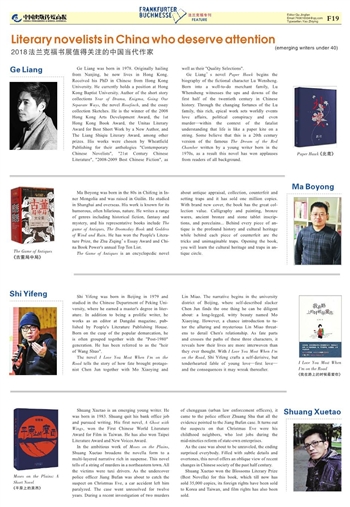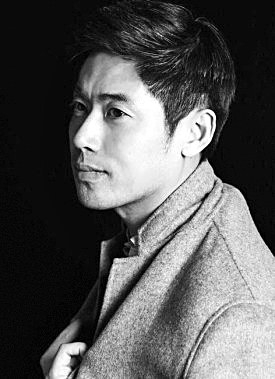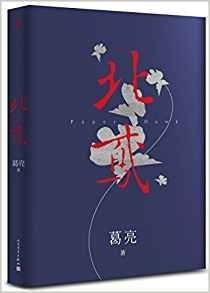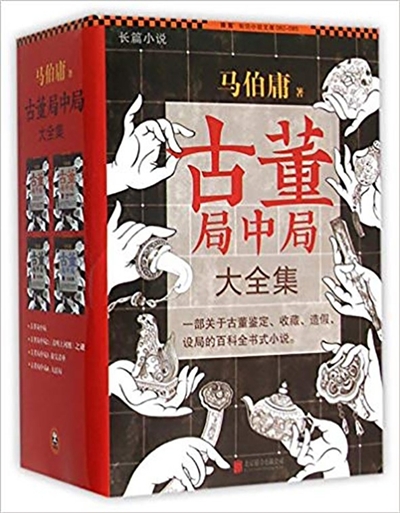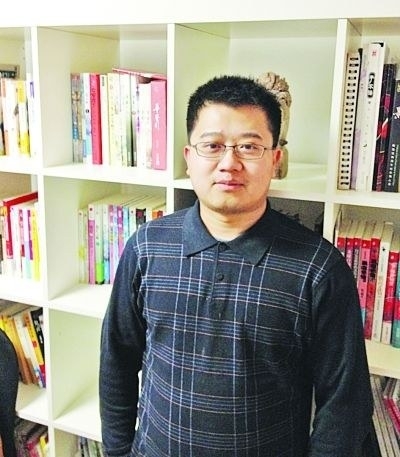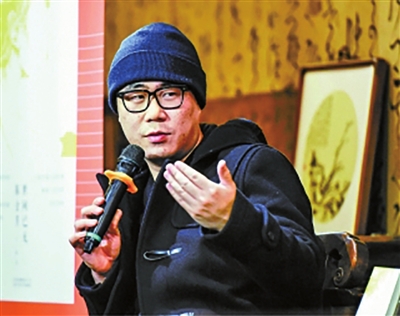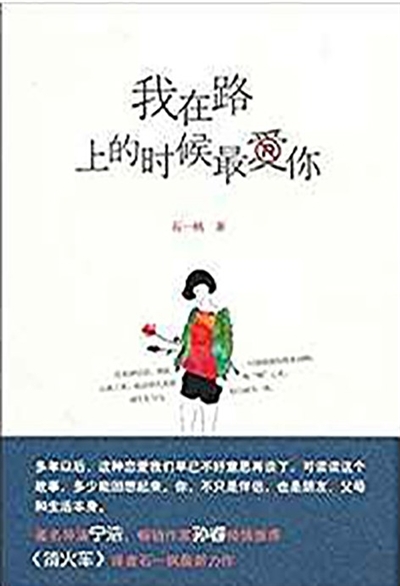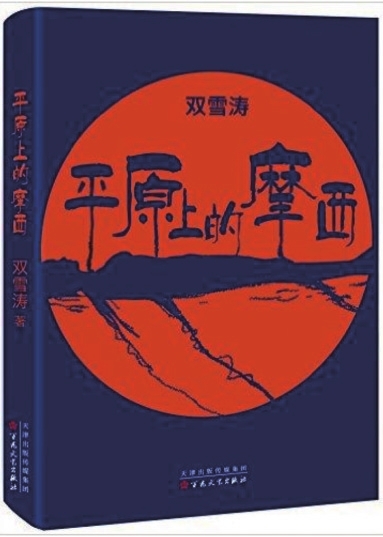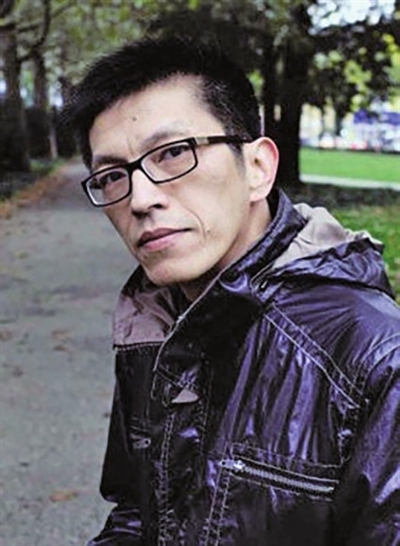Ge Liang’s novel Paper Hawk begins the biography of the fictional character Lu Wensheng. Born into a well-to-do merchant family, Lu Whensheng witnesses the ups and downs of the first half of the twentieth century in Chinese history. Through the changing fortunes of the Lu family, this rich, epical work sets worldly events love affairs, political conspiracy and even murder—within the context of the fatalist understanding that life is like a paper kite on a string. Some believe that this is a 20th century version of the famous The Dream of the Red Chamber written by a young writer born in the 1970s, as a result this novel has won applauses from readers of all background.
Ma Boyong was born in the 80s in Chifeng in Inner Mongolia and was raised in Guilin. He studied in Shanghai and overseas. His work is known for its humorous, often hilarious, nature. He writes a range of genres including historical fiction, fantasy and mystery, and his representative books include The game of Antiques, The Doomsday Book and Goddess of Wind and Rain. He has won the People's Literature Prize, the Zhu Ziqing’s Essay Award and China Book Power's annual Top Ten List.
The Game of Antiques is an encyclopedic novel about antique appraisal, collection, counterfeit and setting traps and it has sold one million copies. With brand new cover, the book has the great collection value. Calligraphy and painting, bronze wares, ancient bronze and stone tablet inscriptions, and porcelains... Behind every piece of antique is the profound history and cultural heritage while behind each piece of counterfeit are the tricks and unimaginable traps. Opening the book, you will learn the cultural heritage and traps in antique circle.
Shi Yifeng was born in Beijing in 1979 and studied in the Chinese Department of Peking University, where he earned a master's degree in literature. In addition to being a prolific writer, he works as an editor at Dangdai magazine, published by People's Literature Publishing House. Born on the cusp of the popular demarcation, he is often grouped together with the "Post-1980" generation. He has been referred to as the "heir of Wang Shuo".
The novel I Love You Most When I'm on the Road tells the story of how fate brought protagonist Chen Jun together with Mo Xiaoying and Lin Miao. The narrative begins in the university district of Beijing, where self-described slacker Chen Jun finds the one thing he can be diligent about: a long-legged, witty beauty named Mo Xiaoying. However, a chance introduction to tutor the alluring and mysterious Lin Miao threatens to derail Chen's relationship. As fate parts and crosses the paths of these three characters, it reveals how their lives are more interwoven than they ever thought. With I Love You Most When I'm on the Road, Shi Yifeng crafts a self-derisive, but tenderhearted fable of young love—first love— and the consequences it may wreak thereafter.
Shuang Xuetao is an emerging young writer. He was born in 1983. Shuang quit his bank office job and pursued writing. His first novel, A Ghost with Wings, won the First Chinese World Literature Award for Film in Taiwan. He has also won Taipei Literature Award and New Voices Award.
In the ambitious work of Moses on the Plains, Shuang Xuetao broadens the novella form to a multi-layered narrative rich in suspense. This novel tells of a string of murders in a northeastern town. All the victims were taxi drivers. As the undercover police officer Jiang Bufan was about to catch the suspect on Christmas Eve, a car accident left him paralyzed. The case went unresolved for twelve years. During a recent investigation of two murders of chengguan (urban law enforcement officers), it came to the police officer Zhuang Shu that all the evidence pointed to the Jiang Bufan case. It turns out the suspects on that Christmas Eve were his childhood neighbors, who lost jobs during the mid-nineties reform of state-own enterprises.
As the case was about to be unraveled, the ending surprised everybody. Filled with subtle details and overtones, this novel offers an oblique view of recent changes in Chinese society of the past half century.
Shuang Xuetao won the Blossoms Literary Prize (Best Novella) for this book, which till now has sold 35,000 copies, its foreign rights have been sold to Korea and Taiwan, and film rights has also been sold.
